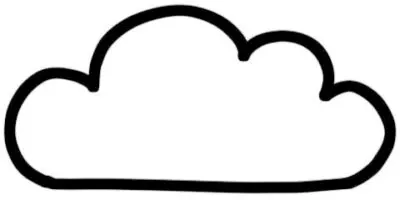
Self-awareness and mindfulness are hard to master but not impossible. The path to self-understanding requires that you have the emotional strength to look at your mistakes and acknowledge them. This is exactly where journaling becomes a part of the discourse. Adapting journaling as a regular habit gives you the opportunity to see yourself for what you are.
Your entries aren’t just an account of your day-to-day activities, they’re also reflecting whatever you think or how you perceive various matters. In order to care more effectively for ourselves, we must find the space and time that’s required. Journaling is one tool that can help us self-reflect. 1
Change requires self-awareness and journaling can be your guide on this journey towards self-awareness. Here are 4 important reasons why journaling is a gateway toward self understanding;
Mindfully Centering our Intentions through Journaling
Bullet journaling can help us identify goals, clarify our thinking, break them down into steps, and move toward success. Whether you approach goal-setting through a cognitive behavioral approach like S.M.A.R.T. goals or prefer a more spiritual or new-age approach, like centering your practice on quartz crystal affirmations, bullet journaling can help you move towards your goals in relationships, career, and internal well-being.
“Wishing is the most powerful force at our command […] the secret is this: Don’t just make a wish; make it presentable. The power of your wish comes from the way you present it to your conscious and subconscious” – Keith Ellis 2
Mindful journaling is one of the best ways to move a wish to a goal to an accomplishment. Through journaling, we can flesh out the steps of achieving our goal, notice progress, and celebrate the mini-milestones along the way.
Practicing Control More Mindfully
Your words and your actions can be catastrophic if you don’t manage your emotions. How many times have you said something cruel during a heated argument and regretted it later? We’ve all been there because most of us don’t know how to healthily process our feelings which results in emotional outbursts.
Journaling is a habit that can help you understand and express your emotions better. You can take time to jot down the things you can’t really say to someone and gradually find the solace you crave.
Journaling allows you to process your experiences, thoughts, and feelings so that you can emerge strengthened with increased clarity. 3

Writing things down can also help you understand yourself and how you can handle a matter with much more ease without hurting yourself or anyone else. Not only does it aid in getting stuff off your chest it can also reduce overthinking which is a habit that always makes things worse for you. It almost seems like you’re catching yourself in the act of doing something wrong, realizing what’s wrong about your behavior without actually committing the act.
A Gateway To Mental Clarity
Sometimes it’s quite impossible to share some things with even your closest confidants. Handling confidential matters of that sort requires transparency and mental clarity. If you’re going to be honest to yourself by gradually analyzing each aspect of the matter then maybe you’ll be able to reach a better conclusion.
What’s so great about journaling is that it lacks any need for a format. You can begin from any angle and conclude at any point. By writing your true feelings down, you’re giving your subconscious a chance to shine through and really bring clarity on the table. Sometimes talking to yourself is the only thing that can help you avoid running in circles and journaling ensures this perfectly.
Self Monitoring
Journaling can help you monitor these aspects of your routine and personality that you rarely get a chance to acknowledge. At the end of every day, if you’re dedicating some time to jot down a brief account of whatever happened, you’re tactically monitoring your life. This is a simple opportunity to write down and go over the things that seem so commonplace but hold an immense impact on us.
You can always reread these entries to analyze where exactly you’re dedicating your energy and what sort of people you’re spending your time with. It’s a way to get to the root of the problem by concluding what kind of people and habits are having a positive impact on you. You can turn a few pages and locate the cause behind an emotional breakdown.
Perhaps those old entries will help you understand why you’ve been feeling so low lately and why that emotional breakdown was long overdue. Thus, journaling helps you understand yourself in a better manner by offering you a mirrored image of what you’ve been up to and what were the consequences of the actions you took.
Acknowledgment Of Your Growth
At times when we feel too low to function properly, it’s important to look at the past and acknowledge the path we’ve walked. No matter how much you look down upon yourself now, there was a time when you thought even worse of yourself. We’re all continuously in a phase of transformation. If you have worked on yourself and are currently moving towards an even better version of yourself you deserve a pat on the back.
The journal you’re jotting down is a record of the treacherous paths you’ve crossed to be where you are now. Turning back some pages and taking a brief look at your roots can sometimes make you more aware of the person you used to be and the person you’re becoming. Not only does it serve as a lesson from the past, or a serotonin booster reminding you of your success, but it also makes you more aware of the changes you’re going to make in the future.
Your previous journal entries can be a motivational force that can jolt you up at your lowest times and unearth the potential that’s hiding under layers of exhaustion. To narrow it down, sometimes it’s essential to be more aware of your sacrifices, efforts, and hidden potential to move forward in life with a positive outlook.
Final Words on Mindful Journaling
Some people tend to adopt a conventional way of journaling with their trusty old notebook and a pen. You can also opt for an app on your phone for the sake of journaling, since it’s much easier to carry your phone around with you. Take your time to explore whether bullet journaling appeals to you or if you would benefit more from long-format journaling.
Sources
- Charles, J. P. (2010). Journaling: creating space for “I”. Creative Nursing, 16(4), 180-184. [↩]
- pg 21. Ellis, K. (2009). The Magic Lamp: Goal Setting for People Who Hate Setting Goals. United States: Harmony/Rodale. [↩]
- Hensley, L. C., & Munn, K. J. (2020). The power of writing about procrastination: Journaling as a tool for change. Journal of Further and Higher Education, 44(10), 1450-1465. [↩]
